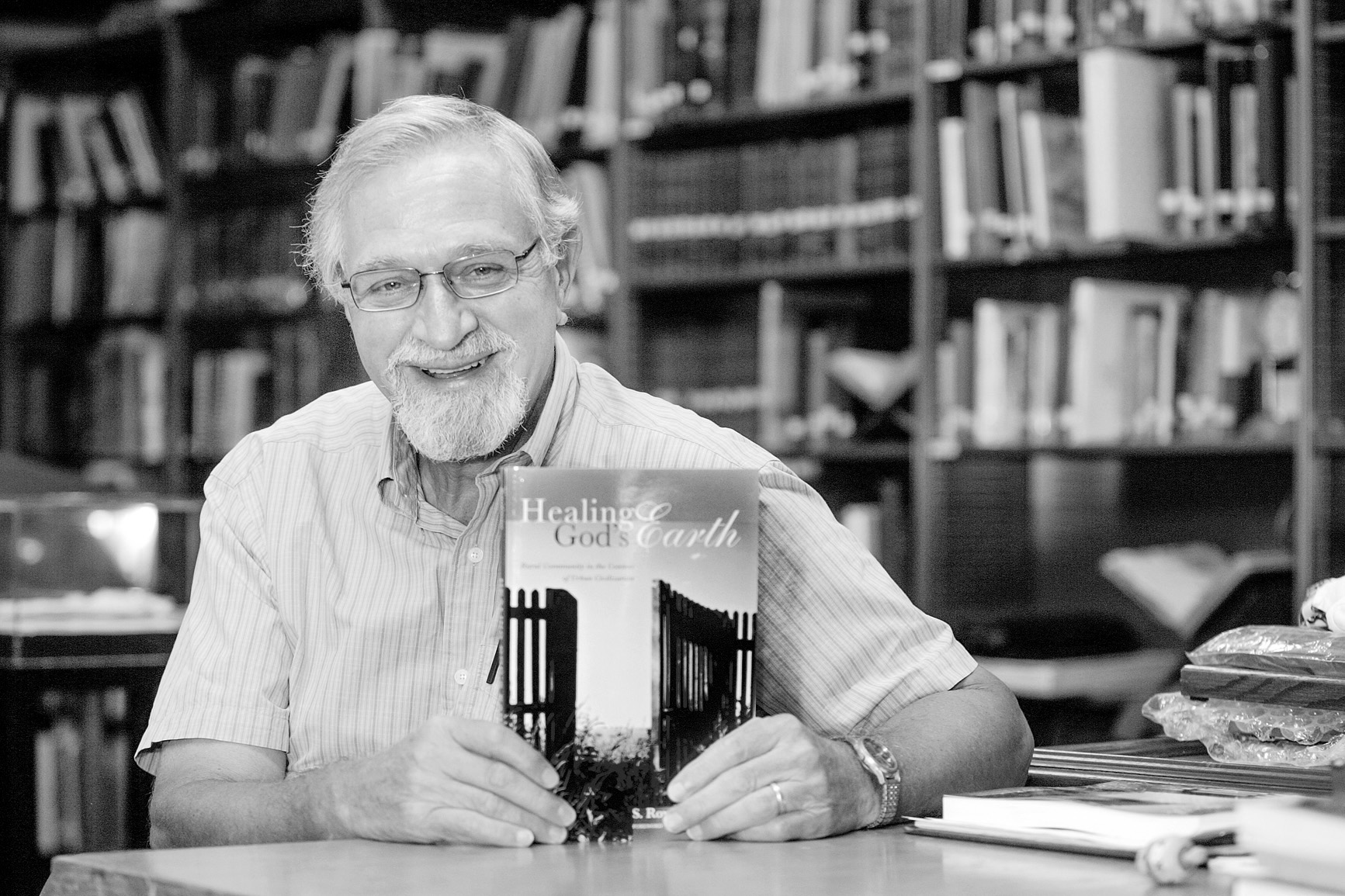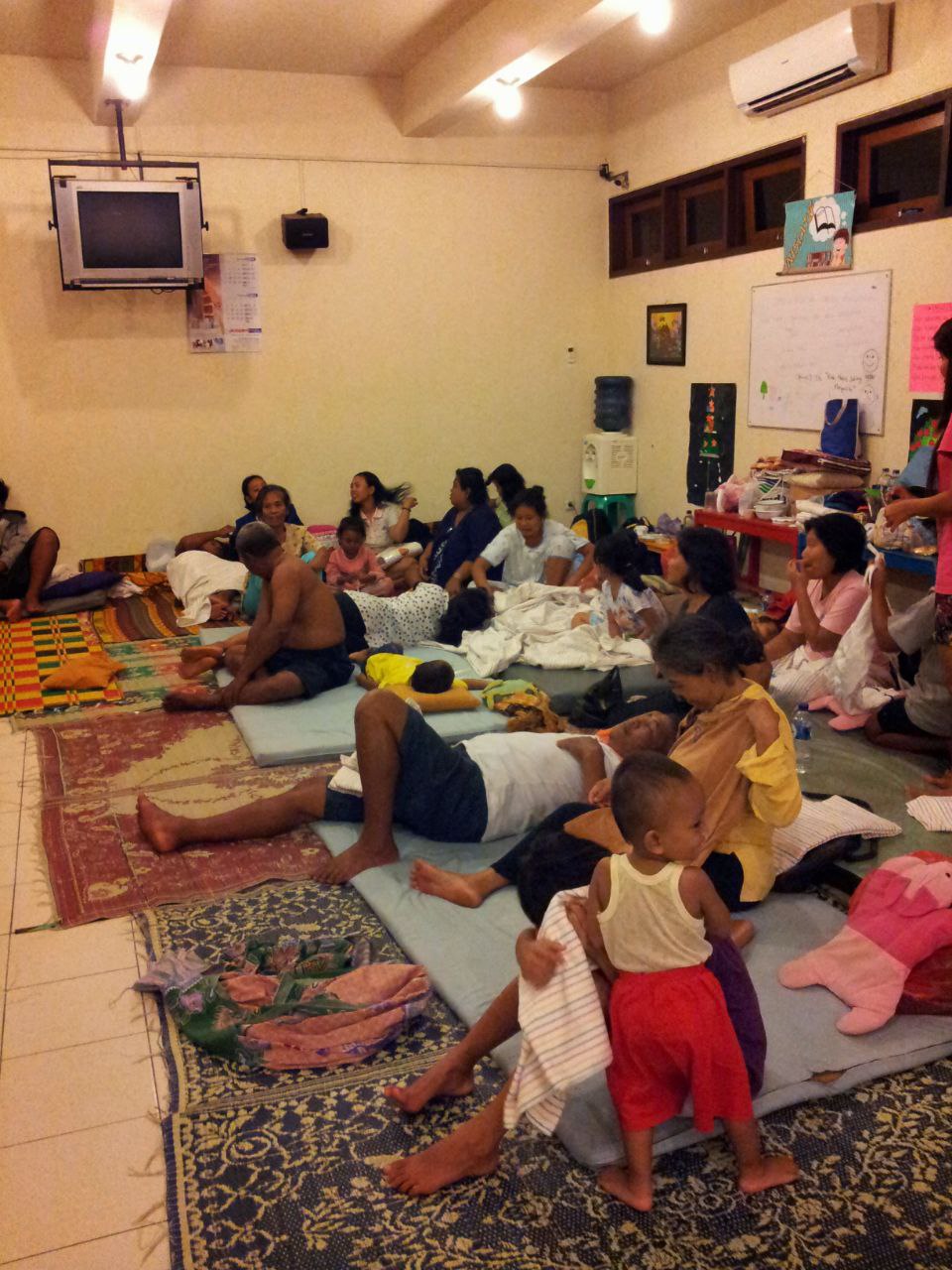“In Germany environmental care has been on the public agenda already for a very long time, making it a part of our church’s collective conscience for a while. We are trying different ways to make good on the belief that we are to be God’s stewards of creation.”
—Dora Schmidt, Mennonitengemeinde Enkenbach Germany
What is the best thing you can do to help with the climate crisis?
The answer given by Katharine Hayhoe, a noted climate scientist and evangelical Christian, may surprise you: We should talk about climate change more with those around us. A faithful response to creation care starts with talking about it, which then leads to other action.
Understandably, the natural response is rather to avoid talking about fraught topics like the climate crisis.

For instance, survey data in the United States shows that although 72% of Americans think global warming is happening, only 35% of Americans talk about it at least occasionally. This is an astonishing disconnect between what we know, and what we talk about, and calls us to be attentive to how much we include climate in our church conversations.
So do we talk about climate change in our churches?
Is creation care actually a part of our “collective conscience” as a church, as suggested by this quote from Germany?
The Creation Care Task Force asked MWC members how often they hear about creation care in their churches and from their leaders.
1. Most churches have talked about creation care.

Most respondents heard about creation care at least occasionally or a few times in their church, with a quarter to a third saying they hear about creation care frequently or even weekly.
Interestingly, there were broad similarities across regions in how often churches are including creation care in their church life, despite churches in different regions facing different challenges in their everyday lives (see “How does climate change intersect with other community challenges?“).
Although it’s encouraging that most people hear about creation care in the church, the lower number that reported hearing about it frequently points toward a need to make the topic more central in church. In fact, there are some congregations where creation care is never mentioned, and many respondents expressed disappointment and frustration at how infrequently they hear about this topic in their worshipping community.
“The church itself has done little to address climate change, other than through leadership seeking to raise awareness of the issue. As in many rural communities, climate change is often dismissed because it seems to represent a threat to the dominant agricultural paradigm currently employed.”
—Roy Kaufman, member of Salem-Zion Mennonite Church, Freeman, South Dakota, USA
2. Church leadership values creation care.
Respondents were evenly split on reporting that church leadership is ‘very aware’ (44%) or ‘somewhat aware’ (47%) of the importance of caring for creation; only a small fraction (8%) felt that leadership was ‘not very aware’.
Broken down between pastors and members, the results showed that both leaders and lay members have similar perceptions that church leaders value care for creation – at least to some degree.
With the increasing impact of environmental issues on communities, talking more about it is a critical step toward making creation care a central activity for the church. Normalizing creation care discussions is an important step toward taking action as individuals and communities.
3. Churches incorporate creation care into teaching and worship in diverse ways.

In addition to incorporating creation care into sermons, Sunday Schools, Bible studies, and other conventional church activities, survey respondents reported a wide range of creative ways that creation care is a part of their church life.
For instance, teachings and worship take forms like seminars, public prayers, a climate youth service, children’s stories and a weekly climate challenge.
Some churches include creation care in ritual, such as holding reflections, participating in Season of Creation, or incorporating it into holidays (such as the North American Thanksgiving holiday).
Other activities were more outward-facing, such as ecumenical celebrations, interfaith conversations and starting citizen initiatives.
Still others embedded creation care in church structure, by creating a climate action committee, a creation care ministry team, or a reflection and work group on creation care.
“Our synod arranges curriculum based on 5 characters: love, truth, justice, peace, and integrity of creation. Those are divided as annual themes. Especially in the year of the integrity of creation, our community programs focus on environmental degradation topic, including the climate change.”
—Moses David Livingstone, GKMI (Gereja Kristen Muria Indonesia) Kudus, Indonesia; also chaplain of Yayasan Bina Pelayanan Masehi (YBPM) Kudus foundation.
Indonesia
Creation care is clearly a central theme for some churches such as the Indonesian church quoted above. The diversity of activities reported in the survey likewise illustrate the many ways that churches take creation care seriously in teaching and worship. These church rituals and other activities around creation care are important ways that lead us to further engage the climate crisis as followers of Jesus.
Join us next month to explore how churches around the world report taking creation care action.
Response/Prayer

Photo: courtesy Moses David Livingstone
Seek conversation:
Make a list of five people in your life with whom you have never discussed the climate crisis.
- As you think of each person, what barriers prevent you from discussing the issue?
- What benefits might come from bringing it up?
Pray for opportunities that enable these conversations to happen.
Affirm creation care leadership:
Where in your congregation have you seen attention to caring for the earth?
Whether this was the action of a pastor or a pre-school class, thank the people involved.
Can you think of ways the church could take this word or act further?
Welcome to a series on environmental problems and the global church.These stories illuminate a) how Anabaptist-Mennonites are affected by environmental degradation, Story #1: How environmental crises impact church communitiesStory #2: How do environmental problems make people feel?Story #3: How does climate change intersect with other community challenges?Story #4: Are our churches and leaders engaged with creation care?Story #5: How do churches practice creation care?Story #6: What would help churches engage more with creation care? |